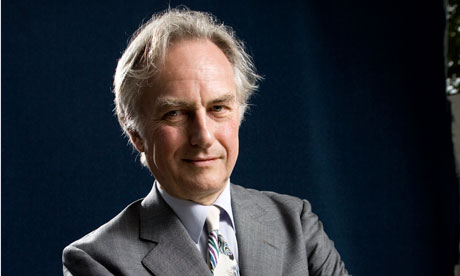Hi guys. Dan asked me a while ago to post up some verses which support the notion that God works CONTINUOUSLY on human wills. I've been busy and forgot, and then remembered but was still busy so forgot again. Finally its here - a rough copy for discussion ;) Let me know your thoughts, or if you have any more verses (I know there are others, just haven't remembered them for this list). Or if you have questions, etc...
Psalms 51:10
This passage shows that David is relying on the Holy Spirit to create cleanness and rightness in his heart following sin. The whole tone of the Psalm is about experience - i.e. its not just a 'spiritual' cleansing, but a real experiential cleansing of the heart to desire and will the way it should. God makes it, and it is a continual process even in Saints (as we know).
Proverbs 21:1
This is fairly blatant. The wording describes a continuous state of heart and a continuous action on God's part. I don't think this is an exception just because a king is someone significant. Some of the dearest passages of Scripture were written by King David - I cherish being able to relate to them. If his will and desires were unusually manipulated by God, how can I read his psalms with any connection?
Romans 8:3-8
These verses set up a clear dichotomy - in every moment, every person either walks and sets their mind in one way or the other. There is no in-between. Of course, this referring to deep, roubust, genuine, enduring states of being, not some temporary (or even prolonged, and henious) fall which runs against our fundamental desires. Most people think that 'being in the Spirit' is a result of faith, but these verses teach that we need to 'be in the Spirit' in order to please God (which means, in order to have faith). Being in the Spirit is a continual thing, not an instantaneous thing - and it is needed to create and sustain the ability to please God (i.e. faith). Any faith I have is thanks to the continuous activity of the Holy Spirit on my will and desires.
Romans 12:2-3
God gives more faith and more transformation to some than to others - and this passage was directed present tense to existing Christians, and so applies to faith and transformation throughout a Christian's walk. We ought to be sober because GOD is the author of our faith, not us. And we ought to judge ourselves, because this is one of God's ways of actively spurring those to whom He has given great faith toward the faith-filled activity He has planned for them, and of spurring those to whom He has given small faith toward the faith-filled activity He has planned for them. He will not let either sit still in self-confidence or introspective faith, or anxiety and apathy. The day-to-day faith I have is a direct gift from God - he works day-to-day on my heart and mind.
1 Corinthians 15:10
Paul's working (this Greek word means some kind of fatiguing activity, not necessarily active or effectual, but certainly requiring a lot of willpower) was actually GOD'S working within Him by grace. In other words, God worked for a significant period of time with such force on Paul's will, that Paul described it as fatiguing labour, but did not think he could even describe it as his own!
Ephesians 1:11-12
The word for 'works' here is 'observable, effectual activity', i.e. direct active work of God Himself. Every beat of every butterfly's wing, every human thought, every electron's orbit is actively 'worked' by God. This point is emphasized specifically for three things: our hope in Christ, our obtaining an inheritance, and God getting praise. None of these are not one time events - they are states of being, which God continually works.
Ephesians 2:8-10
The wording in Greek here denotes a definite plan of Gods, not some vague desire. He designed specific 'works' for us, and created us anew so that we should walk in them. The word for 'works' actually means a continuous occupation and effort, rather than any specific act. And the word for 'created' is also continuous. So God is continually 'creating' us SO THAT (i.e. without the first part, the second part wouldn't happen) we continuously apply effort in the specific occupation He designed for us. There is a huge emphasis here in the whole chapter about how everything is God's doing by grace, and not even the slightest bit is our own.
Philippians 1:6
The 'good work' which God is doing (continuous sense) and will complete, is described by Paul a few verses later - that their love might abound more and more, with knowledge and discernment, that they might approve what is excellent, and be pure and blameless, and be filled with the fruit of righteousness, etc. God is continously working right at the core of human wills - creating love, knowledge, discernment, purity, blamelessness, etc. We are talking about strong motivational stuff as well as detailed head knowledge.
Philippians 2:12-13
This is quite clear - God is the one who works in us, in our wills, so powerfully that it alters our behavior in a consistent and enduring way (i.e. we 'work' for his good pleasure - we 'always obey'). Thus our 'work', indeed our very desire and will to 'work', is actually a result of His 'work' within us (again meaning active involvement). We fear and tremble, the verse says, because it is GOD HIMSELF who works within us, nothing to do with having to strive in your own strength. Read the preceding parts of the chapter and see if you are not inspired to awe and humility and fear and trembling before God. Clearly this is what Paul intended - since our God is like this, THEREFORE work our your salvation in fear and trembling, FOR it is GOD who works in you.
Colossians 1:29
This verse is blatant in describing that it is NOT the fruit of his labour, nor his ability to go on without feeling fatigue (the words describe fatiguing labour), that He is attributing to God. Rather it must be his WILL that he is attributing to God.
1 Thessalonians 3:12-13
The growth in love and holiness in Christians and in the Church are straightforward gifts from God. He causes it. These are continuous processes that stretch right to the core of our mind, will, and emotions.
1 Thessalonians 5:23-24
'Keeping' here means to guard carefully over a long period of time. God is doing something to prevent your spirit, should, and body from losing its blamelessness (i.e. rejecting Christ's covering blood). Apart from God's continuous faithful activity of guarding, you might lose your blamelessness. But we have confidence because He continuously acts on our spirit, soul, and body to guard their blamelessness in Christ.
2 Thessalonians 1:3
Paul gives thanks to GOD for THEIR faith and love, and that it is GROWING. Paul acknowledges that God is ultimately the worker behind their constant development in faith and love. Both faith and love are intimately linked to the will (and even deeper than the will), so this is an obvious but indirect way of saying that God is responsible for their wills, and for their gradual change in their will (for the better).
Hebrews 3:12-14
This passage shows that we were only ever truly shared in Christ (perfect tense) IF we persevere to the end (continuous tense). These tenses only make sense if the persevering happens as a result of sharing in Christ. Our perseverance is not based upon our moment-by-moment decisions, but on the presence (or absence) or a past fact - whether we have shared in Christ (perfect tense). If God uses foresight to prevent some people from sharing in Christ (despite having everything required i.e. true saving faith), it violates Scripture. If He PREVENTS them from having saving faith because he foresees they will not persevere, it is still a continuous act on their will (preventing faith). Or God could act continously not to prevent faith, but to sustain with certainty.
Hebrews 3:5-6
This passage is very similar to the last one. They balance out the other 'warning passages' in Hebrews by showing that those for whom the warning takes effect, were never truly saved - they merely 'tasted' heavenly things (much like the seed that falls on rocky ground in Jesus' parable).
Hebrews 13:20-21
There is a link between God 'working in us' and his 'equipping us' with what we need to 'do his will'. Part of God equipping us to do his will, is a work He does within us - in our souls - which precedes the 'doing'. In other words, it must ultimately affect our will (if it is to cause our doing). Paul believed this was something good which God did and was happy to ask for it rather than avoid it. Our ability to control our own wills was something he wanted over-ridden, not protected.

